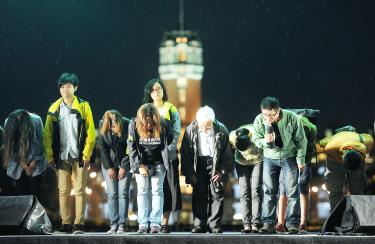Former Democratic Progressive Party (DPP) chairman Lin I-hsiung (林義雄) yesterday afternoon announced the end of his hunger strike against the continued construction of the Fourth Nuclear Power Plant and said he was grateful for the “phenomenal antinuclear effort” of Taiwanese over the past two weeks.
Lin said he would continue to fight what he called the injustice of President Ma Ying-jeou’s (馬英九) administration.














